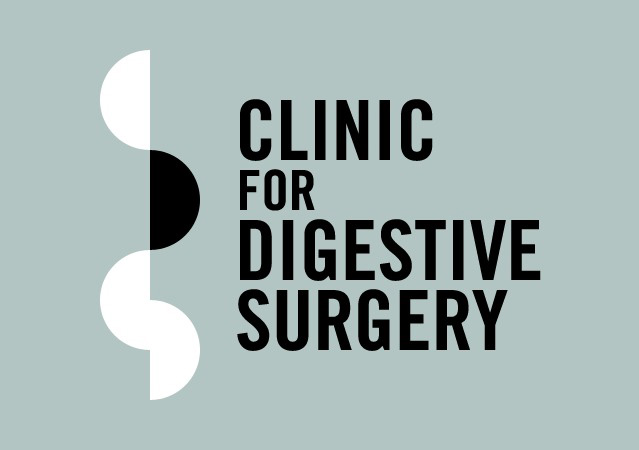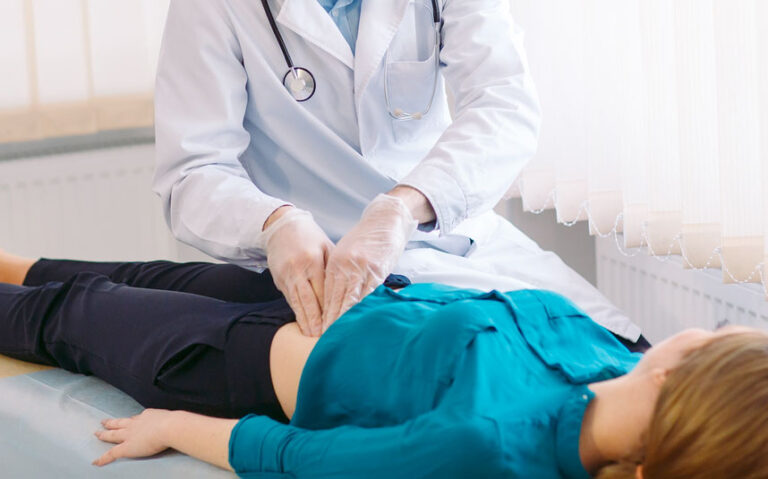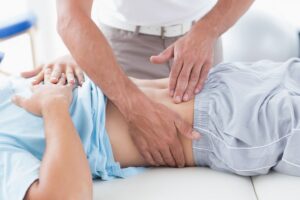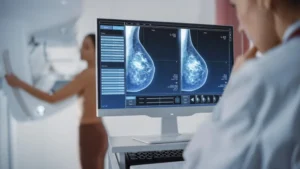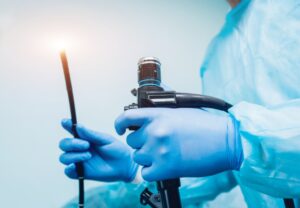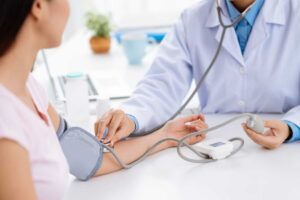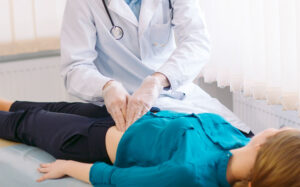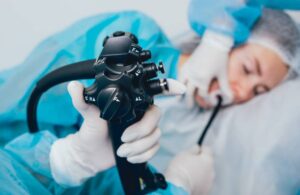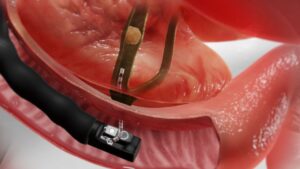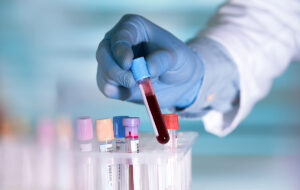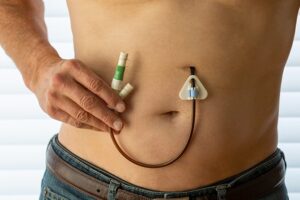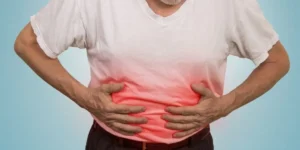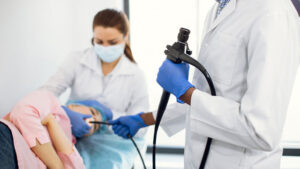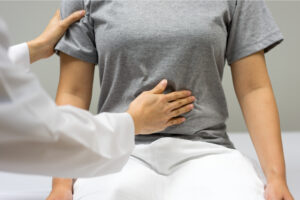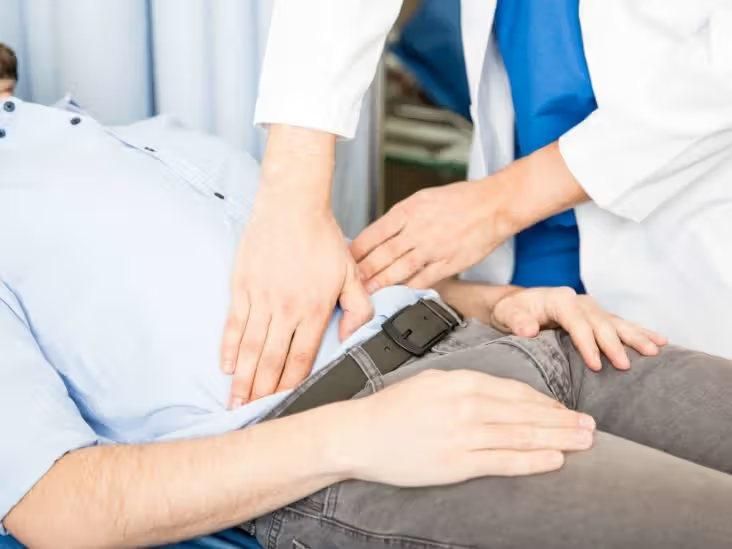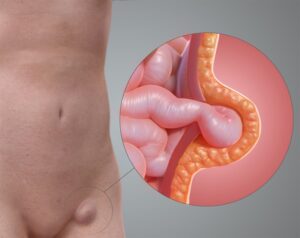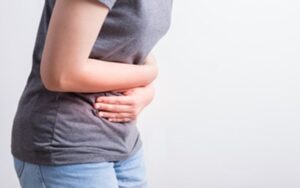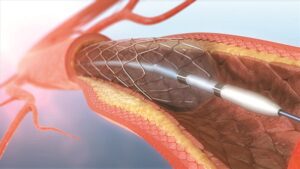Welcome to Clinic for Digestive Surgery’s guide on emergency care for digestive issues. This page is designed to provide you with essential information about what constitutes a digestive emergency, the common symptoms, when to seek immediate medical attention, and the types of treatments you might receive.
What Constitutes a Digestive Emergency?
Digestive emergencies are conditions that require immediate medical attention due to their potential to cause severe complications or be life-threatening. These emergencies can affect various parts of the digestive system, including the oesophagus, stomach, intestines, liver, gallbladder, and pancreas.
Common Digestive Emergencies
- Severe Abdominal Pain – Persistent or intense pain that may indicate conditions like appendicitis, perforated ulcers, or pancreatitis.
- Gastrointestinal Bleeding – Vomiting blood, passing black or bloody stools, which can signal internal bleeding.
- Obstruction – Blockages in the intestines that prevent food, fluids, and gas from moving through.
- Severe Infections – Conditions like diverticulitis or infections in the bile ducts and gallbladder.
- Liver Failure – Acute liver problems that can lead to rapid deterioration of health.
Symptoms to Watch For
Recognising the symptoms of a digestive emergency is crucial. Here are some signs that you should seek immediate medical attention:
- Severe Abdominal Pain – Especially if it is sudden and intense.
- Vomiting Blood, Coffee-Ground Material, or black tarry stools – Indicates upper gastrointestinal bleeding.
- Bloody Stools – Suggest lower gastrointestinal bleeding.
- Persistent Vomiting or Diarrhea – This can lead to severe dehydration and electrolyte imbalances.
- High Fever with Abdominal Pain – This may indicate an infection or inflammation.
- Jaundice – Yellowing of the skin and eyes can signal liver problems.
- Severe Constipation or Inability to Pass Gas – Signs of a possible intestinal obstruction.
When to Seek Emergency Care
Knowing when to seek emergency care can save lives. Here are some scenarios where you should not delay seeking medical help:
- Sudden, Severe Abdominal Pain – Especially if accompanied by vomiting, fever, or signs of shock.
- Signs of Gastrointestinal Bleeding – Vomiting blood, passing black or bloody stools.
- Severe Dehydration – This is due to persistent vomiting or diarrhea, particularly in infants and elderly individuals.
- Difficulty Breathing or Swallowing – This could indicate a serious condition involving the oesophagus.
- Altered Mental State or Severe Weakness – These could be signs of severe infection, liver failure, or other critical conditions.
Diagnostic Procedures in Emergency Care
Upon arriving at the emergency department, the medical team will perform several diagnostic procedures to determine the cause of your symptoms. These may include:
Physical Examination
A thorough physical examination to assess pain, tenderness, and other physical signs.
Laboratory Tests
Blood tests to check for infection, anaemia, liver and kidney function, and other abnormalities.
Imaging Studies
- X-rays – To detect blockages, perforations, or other abnormalities.
- CT Scans – Provide detailed images of the abdominal organs and help identify the cause of pain or bleeding.
- Ultrasound – Used particularly for gallbladder, liver, and pancreas issues.
Endoscopic Procedures
- Endoscopy – Allows direct visualization of the upper digestive tract to identify sources of bleeding or obstructions.
- Colonoscopy – Examination of the lower digestive tract for bleeding, tumours, or blockages.
Treatment Options in Emergency Care
Treatment for digestive emergencies will vary based on the underlying cause. Here are some common treatment options:
Medications
- Antibiotics – To treat infections.
- Pain Relievers – To manage severe pain.
- Proton Pump Inhibitors – To reduce stomach acid and treat ulcers.
Intravenous Fluids
IV fluids to correct dehydration and electrolyte imbalances.
Surgical Interventions
- Appendicectomy – Removal of an inflamed appendix.
- Cholecystectomy – Removal of the gallbladder in cases of severe infection or gallstones.
- Bowel Resection – Removing part of the intestines due to blockage or perforation.
Endoscopic Treatments
- Haemostasis – Techniques like clipping or banding to stop gastrointestinal bleeding.
- Dilatation – Widening of strictures in the oesophagus or intestines.
Supportive Care
In cases of severe illness, supportive care in an intensive care unit (ICU) may be necessary.
Recovery and Follow-Up Care
After initial emergency treatment, follow-up care is crucial to ensure full recovery and prevent recurrence. This may involve:
- Regular check-ups and monitoring of your condition.
- Dietary modifications, quitting smoking, and avoiding alcohol.
- Long-term medications to manage chronic conditions.
- Physical therapy or nutritional support if needed.
Preventing Digestive Emergencies
While not all emergencies can be prevented, certain lifestyle changes can reduce your risk:
- Healthy Diet – Eating a balanced diet rich in fibre, fruits, and vegetables. Trying to minimise intake of processed food.
- Hydration – Drinking plenty of fluids to keep your digestive system functioning properly.
- Regular Exercise – Helps maintain a healthy weight and promotes overall digestive health.
- Avoiding Risk Factors – Such as smoking, excessive alcohol consumption, and prolonged use of NSAIDs.
Knowing the signs and symptoms of digestive emergencies, when to seek medical help, and being aware of the available diagnostic and treatment options can significantly impact your health outcomes. If you experience any severe or persistent symptoms, don’t hesitate to seek emergency care. Our clinic is here to provide you with care and support through every step of your treatment and recovery. Your health and well-being are our top priorities.
